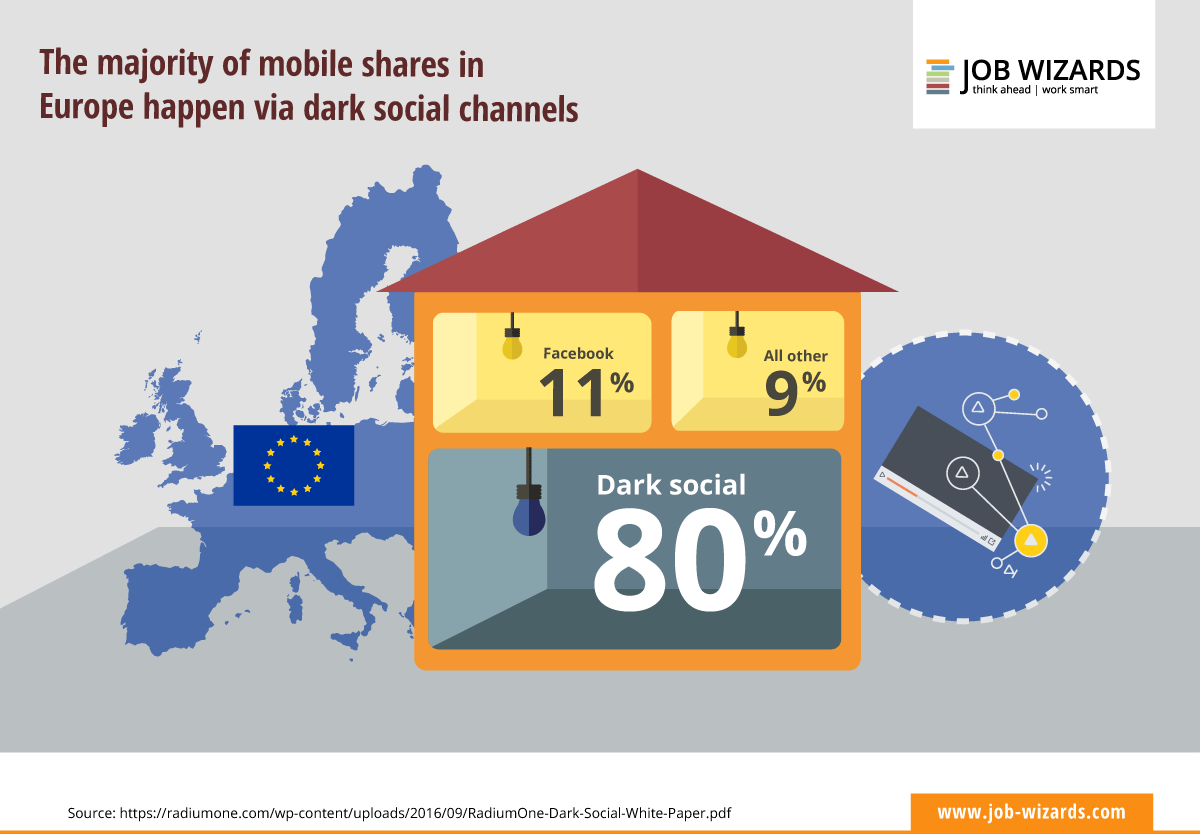The name dark social comes from the fact that this kind of sharing figuratively takes place in the dark, as no one other than the recipient and sender can see the shared digital information.
The name dark social comes from the fact that this kind of sharing figuratively takes place in the dark, as no one other than the recipient and sender can see the shared digital information.
You read an article about free trade on The Economist Online, copy the browser URL into an email and send it to a friend. You have just joined dark social! Dark social describes invisible mentions of a subject in emails, text messages and, above all, in messaging apps such as WhatsApp, WeChat or Facebook Messenger.
In Google Analytics, the article shared via email and then clicked on appears as direct traffic for The Economist Online. And that signifies that the user went to the URL independently – but they did not. The private nature of this traffic channel makes it impossible to find out where it comes from. The Economist therefore doesn’t know where the user found the article. Dark social thus becomes referral traffic allocated to the wrong channel.
How dark social content can be tracked
In the area of e-commerce in particular, it is important not to lose sight of the effects of dark social. In this sector in particular, it is essential that visitors and sharers are tracked in order to have a reliable foundation for future marketing decisions. It makes sense to ensure that customers and interested parties share the content of the site via an official ‘Share’ button rather than deciding to send links via ‘copy and paste’. Google Analytics offers special settings for this: a tracking app and a URL shortener make it possible to offer short links targeted to sharing. In short: sharing via dark social should be made as simple as possible for users, because that is the only way to prevent 82% of all shares taking place in the dark.
This number is particularly relevant because purchasing decisions by 70% of consumers are influenced by recommendations from friends and family. According to RadiumOne, this micro level in dark social among friends and family receives a high level of trust. And those who understand the attraction of dark social can make use of it. The first step is to create mutually useful content – emotive or informative – that is relevant to the target group and easy to share via dark social.
How companies can use dark social
One possible way to achieve this goal is the creation of a WhatsApp channel, for example, to directly share content with people who then forward it to their friends and family. adidas has developed a very successful dark-social strategy in this regard. The brand put together what are known as ‘Tango Squads’: groups of well-connected football fans in 15 major cities around the world. adidas develops exclusive content for these influencers. When the influencers share this content in their networks, the mechanisms of dark social come into play: the number of mentions on these platforms rises sharply.
Small and medium-sized companies can also make use of this system: if you share valuable content with influencers at an early stage – whether it is the beta version of a piece of software, initial concepts for a new product or a comprehensive white paper presenting an innovation – you can rely on the power of the network. As long as it is not ‘hard selling’ and the source of the information remains visible, e.g. through shortened URLs, plenty of share buttons and tracking plug-ins for WordPress and other Web editors, entirely new sources of traffic can be exploited.




